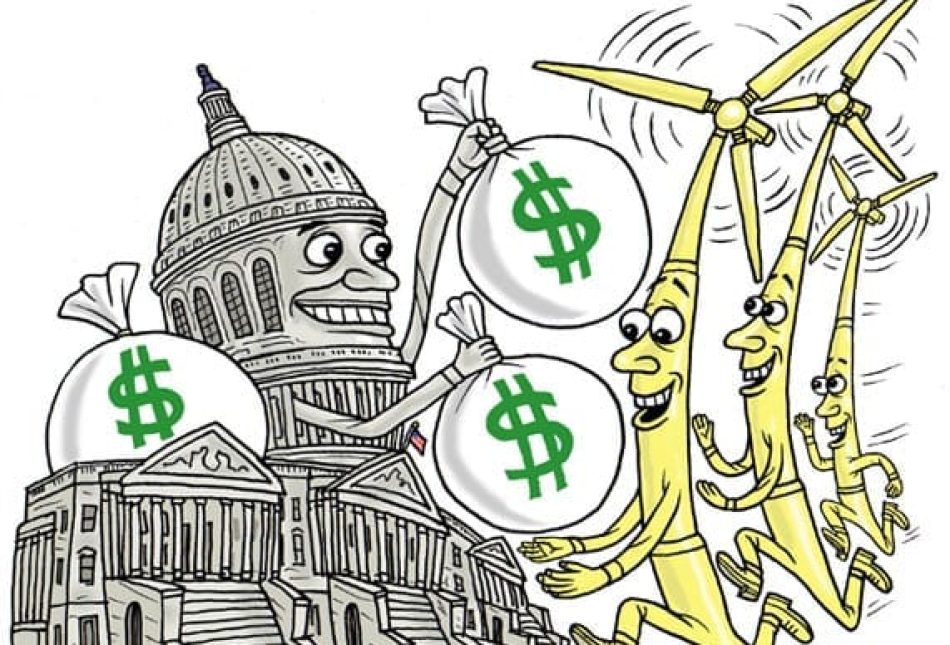Passenger Rail Not Worth Big Subsidies it Requires

The tremendous costs of the Rail Runner were outlined in grave detail recently in the Journal. Annual costs are currently about $50 million between operations and payments on the original infrastructure. A portion of these costs are currently being shifted to the federal taxpayer, but there is nothing “sustainable” about the Rail Runner’s long-term finances.
New Mexico taxpayers will face significant additional financial burdens if the Legislature and Governor decide to spend taxpayer dollars to keep both the Rail Runner and federally-owned Amtrak trains heading down the tracks here in New Mexico.
Worse, what Washington gives us in the form of operating subsidies, it can also take away. New federal regulations costing up to $30 million are being imposed by Washington on the entire railroad industry, including the Rail Runner. Those costs which were completely unexpected will be borne directly by New Mexico taxpayers above and beyond the current operating subsidies which themselves come to nearly $20 per passenger, per trip.
And then there is Amtrak. The federally-owned passenger network receives over a billion dollars annually in taxpayer subsidies. Now, it is asking for up to $200 million – a significant portion of which the passenger rail network is hoping will come from New Mexico taxpayers – in order to improve tracks through New Mexico that are owned by the BNSF railroad. Outside of the Northeast, Amtrak doesn’t own the tracks it runs on; rather it demands use of tracks owned by private-sector freight railroads.
Rail advocates will undoubtedly tout the supposed benefits of having Amtrak service in our state, but the reality is that Amtrak is barely a drop in the bucket when it comes to our transportation network. How often, dear reader, do you pick visiting friends and family up from the train station?
Neither the Rio Grande Foundation, nor other free market transportation analysts who criticize publicly-owned and managed projects like the Rail Runner and Amtrak, hate trains.
Advocates often charge that roads are subsidized, so there is nothing wrong with subsidizing trains. The scale of subsidies is totally different. Roads are subsidized at .5 cents per passenger mile while transit receives 61 cents per passenger mile nationally. Roads may not pay for themselves completely, but they receive few subsidies compared to costly projects like the Rail Runner and Amtrak.
It is not that trains can’t make money. BNSF made over $20 billion in profits during 2012 with little in the way of government subsidies. Nonetheless, I would be outraged if BNSF or any other railroad operator came to the New Mexico Legislature asking for taxpayer dollars to pad their bottom line. There’s no reason not to hold Amtrak and the Rail Runner to a similar standard.
In tough economic times with slow revenue growth, we should not divert limited taxpayer dollars from schools, needed tax reforms, and other economic development priories to fund economically superfluous passenger rail systems. How much money is the Legislature going to throw at Amtrak and the Rail Runner before saying “enough?”
To the best extent possible, all modes of transportation, including roads, should compete on an even playing field free of taxpayer subsidies. Freight rail does this successfully throughout American and has so for years while passenger rail has not.
I don’t envy Governor Martinez or legislators and the tough decisions they face when it comes to pouring more money into these systems to keep them going or cutting them off and letting them fail completely.
If there is a silver lining to all this it is that, hopefully, the next time someone starts selling massively-expensive dreams of a transformed transportation network, voters and elected officials will remember that government-led “transformations” come with steep price tags.
Paul Gessing is the President of New Mexico’s Rio Grande Foundation. The Rio Grande Foundation is an independent, non-partisan, tax-exempt research and educational organization dedicated to promoting prosperity for New Mexico based on principles of limited government, economic freedom and individual responsibility.

